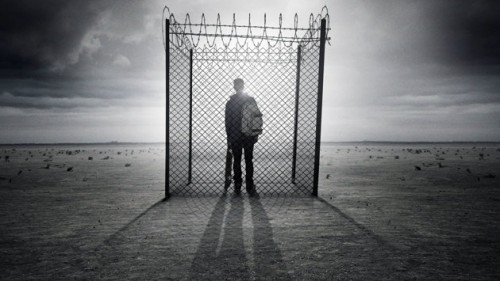By Greg Popil
A sad, tragic story, particularly in documentary form, can be painful to watch regardless of the tale’s location, participants, and details. A good filmmaker can chronicle the exploits of underprivileged or abused people from Southern California or the depths of the Sudan and make the tale relatable enough that the audience can feel the pain of the victims, and also expose the reasons that a person might make themselves monstrous enough to do such harm.
All that said, there is no way to deny the added shock that comes from seeing such horrors, blown up on a big screen, perpetuated in your local area. The new documentary “Kids for Cash,” about the corrupt former Luzerne County Judge Mark Ciavarella, who allegedly sent thousands of children to a privately run detention center in exchange for kickbacks, would be tough to watch no matter the context. But it is impossible to deny that seeing constant reminders of exactly where this happened, whether it be shots of Public Square in Wilkes-Barre or a scene where Ciavarella drives down Interstate 81 to his trial in Scranton, adds a brutal punctuation mark to anyone who grew up in Northeastern Pennsylvania.
The Ciavarella case became national news after the story broke that the FBI was investigating the judge, along with fellow Judge Michael T. Conahan, for helping to erect a new juvenile detention facility in Luzerne County (“Somewhere I would feel OK about my kids going if they had to”) in exchange for what they call a “finder’s fee” of 2.2 million dollars. In the years since, Ciavarella sent thousands of children, many of whom had committed seemingly minor infractions like fighting in school or creating a fake MySpace page, to the detention center. It should be noted that there was never conclusive proof that Ciavarella accepted direct bribes to send the children to this facility, although the film makes a very compelling argument that this may have been the case.
“Kids for Cash” follows a standard documentary format at first, laying the groundwork for the scandal by providing background on the principals and interviewing the victims. Some of them, like the girl who put up the aforementioned MySpace page, seem to have recovered from the ordeal as well as you could possibly expect and are able to find a sliver of humor in their ordeal.
Others never would. The movie is never as powerful as it is when it depicts the awful ordeal of a mother whose son, after being chewed up and spit out by Ciavarella’s court, was never able to recover. Her confrontation with Ciavarella outside the Lackawanna County Courthouse provides the film’s powerhouse climax. First-time director Robert May does an admirable job of removing himself from the picture and letting the children and parents tell their heartbreaking stories with a minimum of interference.
Had the movie settled for these points of view, it would have told a necessary, fascinating story. Where “Kids for Cash” takes a turn into the extraordinary, even borderline unbelievable, is that the filmmakers actually coerced Ciavarella into participating heavily in the movie, sitting for several on-camera interviews over the course of his entire trial. Ciavarella never manages to convince you that he did not commit these crimes, but, in his bullheaded commitment to his story, he convinces you that he has convinced himself that he is innocent of any serious wrongdoing. He admits to “moral failures” in taking the money for helping to get the prison built, but admits to nothing more than hypocrisy when it comes to how he punished juvenile offenders.
Finally, as the judgments of both the national media and the local populace begin to close in on him (a series of interviews in a Wilkes-Barre pizza parlor provide a rare moment of levity), we see Ciavarella finally break down, and admit to being, in his own words, a “scum bucket.” One would think that this might provide a feeling of catharsis (the brutality of Ciavarella’s sentence in no fits the crimes for which he was actually convicted, in a neat bit of irony), but the whole thing just leaves the viewer feeling sad, like a whole lot of lives would not be ruined had one man just done his job the right way.
Rating: 75/81




Leave a Reply